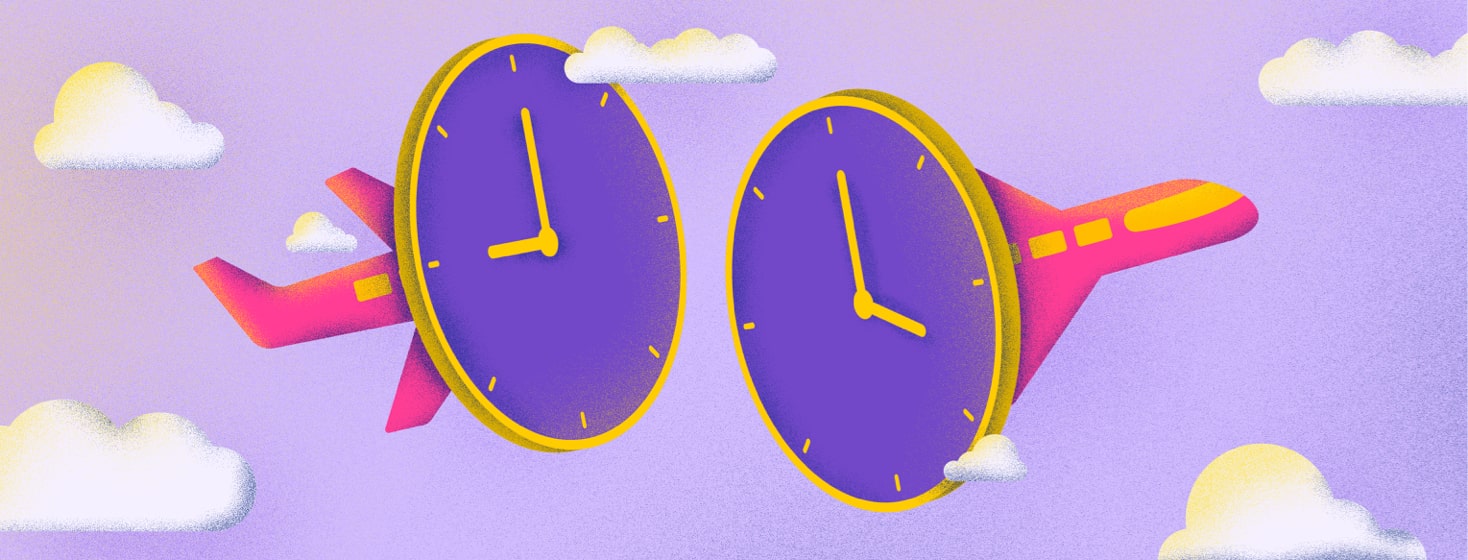Jetlag and Sleep-Onset Insomnia: Part One, Westward Travel
I have not had insomnia for many years, courtesy of doing cognitive behavioural therapy for insomnia. However, due to a weird confluence of events, when I did have insomnia, I also had the privilege of being able to travel extensively. And I took advantage of it for all of the growth, learning, and adventure that worldwide travel can bring.
Jetlag and sleep-onset insomnia
It is a 'first world problem' to complain about having to cope simultaneously with jetlag and sleep-onset insomnia. Still, as the world is returning to normal-ish travel-wise after the pandemic and more and more people are taking holidays or visiting parents, more people with insomnia will be facing both issues. I thought it might be helpful to share how I coped with the jetlag on top of my insomnia.
I live in the UK, but my family live on the east coast of North America. The UK is 5 hours ahead of them, so when it's noon at my parent's house in New Hampshire, it's dinnertime for me near London.
Traveling west
When I travel west, from London to Boston, the flight itself takes about 7 hours. It feels like 17 because of having to get to the airport lots of hours ahead of time and anticipatory insomnia from the night before.
The flight takes 7 hours, but I'm going back in time 5 hours – so on the clock, the whole trip takes only 2 hours. I can leave at 1:30 PM and be there at 3:30 PM – but in reality, it feels like it took all day because 3:30 PM is actually 8:30 PM back home – and in my body and brain.
As an early bird who ideally is sleeping by then, it makes the remainder of the trip (a four-hour drive) a very long day. I'm usually asleep at 8:30 nowadays, but when I have had insomnia, it would be much later (though I'd be very tired by that time of day, just not able to fall asleep).
Jetlag helped sleep-onset insomnia
Evening changes
Traveling west at that time isn't a bad position for someone with sleep-onset insomnia! I'd wanted to stay up and chat with my parents when arriving, building up lots of sleep drive until I normally would have fallen asleep with my insomnia. So in that direction of travel, it was pretty helpful to me in the evening.
And because I didn't have a 'wakeful/insomnia/tossing and turning' relationship with the bed I was sleeping in, as I did at home, I slept better and was able to eventually fall asleep more easily at a 'usual' time.
Morning changes
Jetlag would also mean I'd be up early in the morning. When my usual get-up time is around 5 or 6 AM, it would be too early for everyone else to be up. Because I'd be exhausted from the travel, I'd sleep until 5 or 6 AM local time (or 9 or 10 AM, my biological time).
This was still early for them, allowing me some much-needed alone/introvert time from all the visiting. Being a natural early bird would always mean that I'd be up well before everyone regardless of having jetlag or not, which worked great for me even after the handful of days it took to get used to the new timezone.
Coping with insomnia and travel
It's generally much easier for me to cope with insomnia on my westward trips, but in part 2, I'll talk about how my sleep-onset insomnia made it much more difficult to adapt to the eastward return trip home.
How do you cope with travel and your insomnia?
Please share a comment below.

Join the conversation